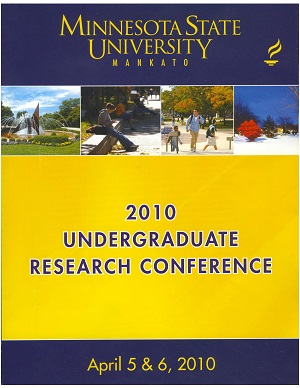The Effects of Dissonance and Consonance within Music on the Cognitive Performance of Introverted and Extroverted Individuals
Location
CSU 201
Start Date
6-4-2010 10:00 AM
End Date
6-4-2010 12:00 PM
Student's Major
Psychology
Student's College
Social and Behavioral Sciences
Mentor's Name
Karla Lassonde
Mentor's Department
Psychology
Mentor's College
Social and Behavioral Sciences
Description
Dissonance is a musical term describing compositional pieces with harsh overtones and an overall level of disagreeability between notes. Consonance is a descriptor for a piece of music that has a feeling of stability and comfort. While there has been much research within the psychological community as to how classical music can affect an individual’s cognitive performance, little investigation has been done to look at how the note structure and overall compositional tone of a piece of music influences cognitive performance. In this study we investigated how musical structure can affect a piece’s ability to aid or hinder cognitive performance within individuals of varying personality types. Fifty undergraduates in psychology from MSU, Mankato were asked to complete a mental rotation task and a stoop task, two measures of cognitive processing, while exposed to one of three categories of sound: dissonant music, consonant music or white noise. Following their completion of these tasks, they were asked to complete a 50 item version of the International Personality Item Pool or IPIP as a measure of their personality traits. Research suggests that an individual’s level of introversion or extroversion may influence how music affects performance on cognitive tasks (Bodner, E., Gilboa, A., & Amir, D., 2007).We expected to find that individuals with extroverted personalities would score higher while exposed to dissonant music than when exposed to consonant music or white noise We also expected that introverted individuals’ performance would suffer on the cognitive tasks while exposed to dissonant music when compared to their extroverted counterparts.
The Effects of Dissonance and Consonance within Music on the Cognitive Performance of Introverted and Extroverted Individuals
CSU 201
Dissonance is a musical term describing compositional pieces with harsh overtones and an overall level of disagreeability between notes. Consonance is a descriptor for a piece of music that has a feeling of stability and comfort. While there has been much research within the psychological community as to how classical music can affect an individual’s cognitive performance, little investigation has been done to look at how the note structure and overall compositional tone of a piece of music influences cognitive performance. In this study we investigated how musical structure can affect a piece’s ability to aid or hinder cognitive performance within individuals of varying personality types. Fifty undergraduates in psychology from MSU, Mankato were asked to complete a mental rotation task and a stoop task, two measures of cognitive processing, while exposed to one of three categories of sound: dissonant music, consonant music or white noise. Following their completion of these tasks, they were asked to complete a 50 item version of the International Personality Item Pool or IPIP as a measure of their personality traits. Research suggests that an individual’s level of introversion or extroversion may influence how music affects performance on cognitive tasks (Bodner, E., Gilboa, A., & Amir, D., 2007).We expected to find that individuals with extroverted personalities would score higher while exposed to dissonant music than when exposed to consonant music or white noise We also expected that introverted individuals’ performance would suffer on the cognitive tasks while exposed to dissonant music when compared to their extroverted counterparts.
Recommended Citation
Follick, Brian. "The Effects of Dissonance and Consonance within Music on the Cognitive Performance of Introverted and Extroverted Individuals." Undergraduate Research Symposium, Mankato, MN, April 6, 2010.
https://cornerstone.lib.mnsu.edu/urs/2010/oral-session-09/2




